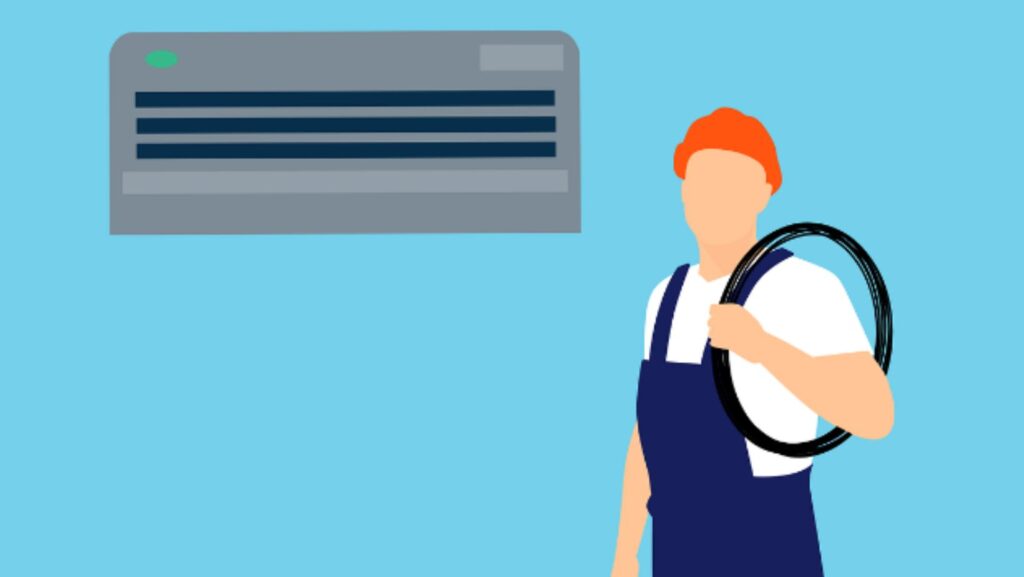Dealing with AC issues is an inevitable part of homeownership, especially during the hot summer months. Fortunately, understanding common problems and implementing simple hacks can help you avoid expensive repairs. Here’s a look at some of the most common air conditioning issues and tips to keep your system running smoothly.
Refrigerant Leaks
Refrigerant leaks are one of the most common and costly challenges homeowners face. Your air conditioner relies on refrigerant to cool the air, but if there’s a leak, the system can’t operate efficiently. You may notice that your home isn’t as cool as it should be, or the AC is running constantly without achieving the desired temperature. Refrigerant leaks not only reduce efficiency but can also damage other components, leading to expensive repairs.
To avoid refrigerant leaks, it’s important to schedule regular AC maintenance checks. A licensed technician can inspect the refrigerant levels and repair any small leaks before they become bigger problems. They can help you tend to these AC issues before they become serious. Additionally, keeping your unit clean and ensuring proper airflow can prevent the system from overworking, reducing the risk of leaks over time.
Clogged Air Filters
Clogged air filters are another frequent issue that can lead to reduced cooling performance and potential system damage. When the air filter becomes dirty, it restricts airflow, causing the AC to work harder to cool your home. This not only raises your energy bills but can also lead to overheating or other system malfunctions.
The easiest way to avoid this problem is by changing your air filter regularly — typically every one to three months, depending on usage and the type of filter. If you have pets or live in an area with high pollen levels, more frequent filter changes may be necessary. Additionally, using high-quality filters can trap more dust and debris, ensuring cleaner air and a more efficient system.
Thermostat Malfunctions
Thermostat malfunctions can lead to improper temperature control, making your home either too hot or too cold. This issue can occur due to the following:
- Dead batteries
- Improper calibration
- Loose or faulty wiring
- Placement in poor locations
- Dirt or debris
- Outdated or faulty thermostat

To prevent thermostat issues, check the batteries regularly and replace them as needed. If your thermostat is older, consider upgrading to a programmable or smart thermostat, which offers more precise control and can help you save on energy costs.
Frozen Evaporator Coils
Frozen evaporator coils are another common problem that can disrupt your AC’s ability to cool your home. This occurs when there’s insufficient airflow over the coils, causing condensation to freeze. As the coils freeze, the AC loses its ability to remove heat from the air, leading to poor cooling performance and potential system shutdowns.
Preventing frozen coils is relatively simple. First, make sure to change your air filters regularly to ensure proper airflow. Second, ensure that the evaporator coils themselves are clean, as dirt buildup can block airflow. Scheduling routine maintenance can help identify and clean dirty coils before they freeze. If your coils freeze despite taking these precautions, turn off the system and contact a professional technician to inspect for refrigerant issues or airflow blockages.
Fan Problems
Your AC unit has two main fans: one that blows air over the evaporator coils to cool your home, and another that expels heat outside. If either fan isn’t working properly, your system won’t be able to cool efficiently, which can lead to overheating or other damage. Fan problems can arise from issues like motor malfunctions, worn belts, or a lack of lubrication in the fan motor.

To avoid fan issues, ensure your system is regularly maintained. A technician can inspect the fan motor, lubricate the bearings, and replace worn-out parts before they fail. If you notice your AC making unusual noises or experiencing reduced airflow, it could be a sign of a fan problem.
Electrical Issues
Electrical problems are another common cause of AC malfunctions. Your system relies on a network of wiring, fuses, and breakers to operate. Faulty wiring, tripped breakers, or blown fuses can all cause the AC to stop working or perform erratically. If your AC shuts off unexpectedly or fails to turn on, it could be due to an electrical issue.
To avoid electrical issues, it’s essential to have your system’s wiring inspected by a professional during routine maintenance. Further, ensure that the area around your outdoor unit is free of debris and vegetation, which can obstruct airflow and cause overheating. If you experience frequent electrical issues, it may be a sign that your system is aging and in need of replacement or that the electrical components need an upgrade.
By understanding and addressing these challenges, you can prevent small problems from turning into costly repairs. Regular maintenance, timely filter changes, and staying alert to signs of trouble can keep your system running efficiently and extend its lifespan. With the right precautions, you can enjoy a cool, comfortable home without the stress of expensive air conditioning repairs.



